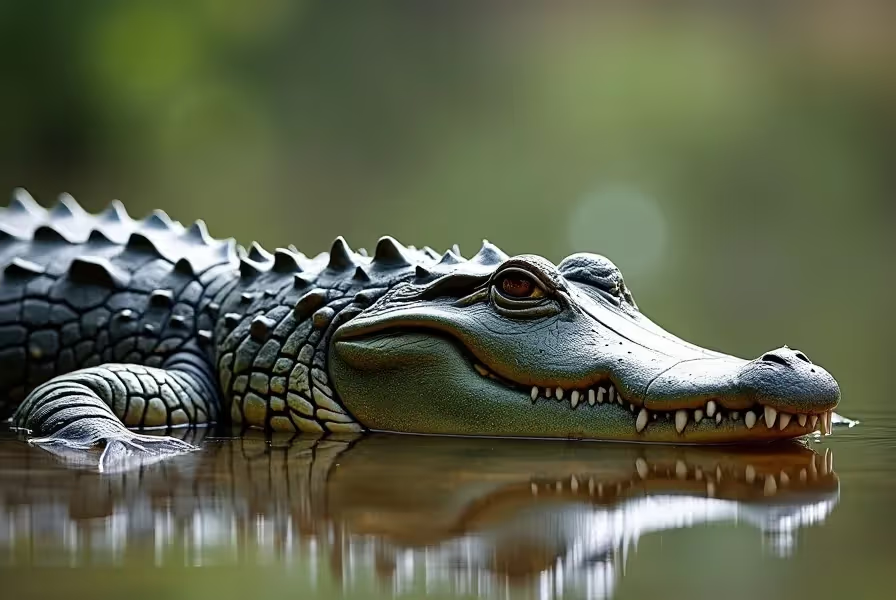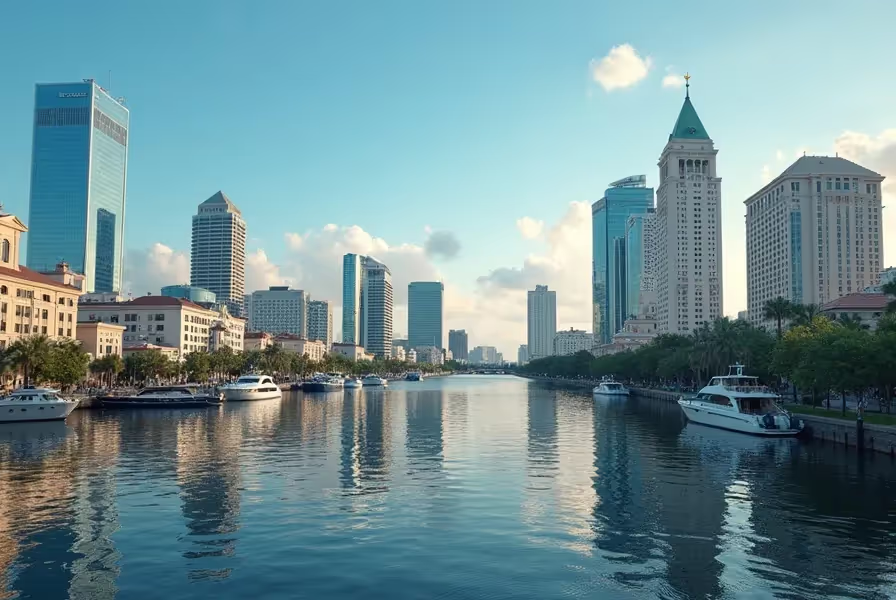Understanding Florida's Wildlife: Are Crocodiles Really There?
When you think of Florida, you might imagine sunny beaches, vibrant cities, and diverse wildlife. But you may also wonder, are there crocodiles in Florida? The answer is yes — but Florida's crocodilian population is more complex than many assume.
This blog will help you explore where crocodiles live in Florida, how they differ from alligators, and what to know if you're living, studying, or traveling in the Sunshine State. If you're considering moving to Florida for college or a career, understanding its natural ecosystem is part of making an informed and safe decision.
Where Do Crocodiles Live in Florida?
Yes, American crocodiles do live in Florida, but their range is limited compared to alligators. You'll mostly find them in the southernmost regions of the state.
Common crocodile habitats in Florida include:
- Southern tip of Florida, particularly in South Florida
- Coastal mangroves and estuaries
- Everglades National Park
- Florida Bay and Biscayne Bay
Unlike alligators, crocodiles prefer brackish or saltwater environments. They're shy animals and not commonly seen by most people living or studying in Florida.
Alligators vs. Crocodiles: What's the Difference?
In Florida, you're more likely to encounter alligators than crocodiles. Understanding the differences can help you stay safe and aware of your surroundings.
Key differences include:
- Habitat: Alligators live in freshwater areas; crocodiles prefer saltwater or brackish water.
- Appearance: Crocodiles have V-shaped, narrow snouts; alligators have U-shaped, wider snouts.
- Color: Crocodiles are generally lighter and grayish-green; alligators are darker, often blackish-green.
The American crocodile is also more sensitive to cold temperatures, which keeps its population mostly restricted to the far south of the state.
How Many Crocodiles Live in Florida?
The American crocodile is one of the rarest species of crocodilians in the U.S. Its current population is estimated at around 2,000 individuals in Florida. This number has grown significantly due to successful conservation efforts. Once listed as endangered, the species is now classified as threatened under the Endangered Species Act.
Crocodiles in Florida are mostly found in protected areas. Because of conservation laws, it's illegal to harass, injure, or kill these reptiles.
Are Crocodiles Dangerous to Humans?
Crocodiles are large predators, but attacks on humans are extremely rare in the U.S. They tend to avoid human contact whenever possible.
To stay safe near crocodile habitats:
- Do not swim in known crocodile habitats, especially at night.
- Keep pets on a leash and away from the water's edge.
- Never feed crocodiles; doing so is illegal and dangerous.
Understanding how to coexist with wildlife is important if you plan to study or work in Florida, especially in South Florida’s coastal areas.
Why Are Crocodiles Important to Florida’s Ecosystem?
American crocodiles play a vital role in Florida’s natural habitats, especially in the Everglades. As apex predators, they help maintain a balanced food web by managing fish populations and scavenging carrion.
They also help shape their environment. For example, they dig holes that hold water during dry seasons. These holes become life-saving refuges for many other species during droughts.
FAQs About Crocodiles in Florida
How far north do crocodiles live in Florida?
Crocodiles are found primarily in South Florida. They rarely go beyond central Miami or the Florida Keys. Unlike alligators, which are widespread, crocodiles stay close to warm, salty environments.
Are crocodiles protected in Florida?
Yes, American crocodiles are protected under state and federal regulations. They are listed as a threatened species. It is illegal to disturb or harm them in any way.
Can you see crocodiles in the Everglades?
Yes, the Everglades is one of the best places to observe crocodiles in Florida. They're more elusive than alligators, but with some patience and guided tours, you might spot one near the coast.
Are there crocodile attacks in Florida?
Attacks by crocodiles in Florida are very rare. According to the Florida Fish and Wildlife Conservation Commission (FWC), there have been only a handful of documented incidents involving crocodiles. They tend to avoid humans and only react if provoked or threatened.
What should you do if you see a crocodile?
Stay calm and keep your distance. Do not approach or feed the crocodile. Contact local wildlife authorities if you feel the animal is in a dangerous location or posing a threat.
Crocodiles and Your Florida College Experience
As a student moving to or living in Florida, you may have concerns about its unique wildlife. Knowing where crocodiles live and how to stay safe helps make your experience positive and informed.
Most universities and colleges in Florida are located outside of known crocodile habitats. You’re more likely to encounter alligators in lakes or ponds near campus than crocodiles. Still, outdoor safety practices are essential for anyone enjoying Florida's natural beauty.
Conclusion: What You Should Know About Crocodiles in Florida
Yes, crocodiles live in Florida, but only in specific areas in the far south. They are a rare but important part of Florida's biodiversity. While it’s unlikely you’ll see them often, it’s good to understand where they live, how they differ from alligators, and how to stay safe around them.
Whether you’re planning to study environmental science, wildlife conservation, or simply enjoy outdoor activities in Florida, knowing about local ecosystems adds value to your journey. It’s about being informed, respectful, and prepared as you take the next steps in your personal and academic life.
By learning about Florida's unique mix of species — from the American crocodile to other native wildlife — you're not just preparing for school. You're becoming a more aware and responsible citizen of the environment.









.avif)

.svg)



